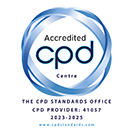28 October 2014
The Science of Magic: Why Magic Works
Organised by:
SCI's London Group in partnership with UCL's Chemical Physical Society
University College London, London, UK
Registration Closed
This event is no longer available for registration.
Synopsis
Magic is one of the oldest art forms, and for centuries conjurers have created illusions of the impossible by distorting your perception and thoughts. Advances in Psychology and Neurosciences offer new insights into why our minds are so easily deceived and Dr Kuhn will explore some of the mechanisms that are involved in magic. Magic involves more than simple deception. Magic works because these psychological limitations are so counterintuitive that they are more willing to accept a magical interpretation rather than acknowledge these limitations.
In this talk we will explore some of the principles used by magicians to distort your perception. For example, we will look at how magicians use misdirection to manipulate your attention and thereby prevent you from noticing things event though they might be right in front of your eyes. Alternatively, magicians may manipulate your expectations about the world and thus bias the way you perceive objects and can even make you see things that aren't necessarily there. At first sight, our proneness to being fooled by conjuring tricks could be interpreted as a weakness of the human mind. However, contrary to this popular belief, Kuhn will demonstrate that these 'errors' reveal the complexity of visual perception and highlight the ingenuity of the human mind.
Speaker
Dr Gustav Kuhn, Goldsmiths University.
Dr Gustav Kuhn worked as a professional magician and it was interest in deception and illusions that sparked curiosity about the human mind. Gustav is a senior lecturer at Goldsmiths University, University of London, and one of the leading researchers in the science of magic.
Programme
Accessibility Grants
SCI accessibility grants are available to support SCI members with disabilities, long term health conditions, those who require a carer, and members who are nursing parents to attend SCI events. Download an application form to apply for a grant.
Venue and Contact
UCL
Department of Chemistry
University College London
20 Gordon Street
London, WC1H 0AJ
SCI Communications
Tel: 0207 598 1594
Email: Communications@soci.org
Fees
This is a FREE event. No need to book.
Become an SCI Member and save on this and future events
See Membership OptionsSign up as an Event Member to join this event. SCI Full or Student Members receive discounts on event registrations
Booking Process/Deadlines
CPD Info
All delegates attending this meeting are able to claim CPD points.
Additional Info
Exhibition and Sponsorship
An exhibition will take place alongside the conference for companies and related organisations who may wish to exhibit. Please email conferences@soci.org for further information and prices. Spaces are limited and will be allocated on a first-come, first-served basis.





